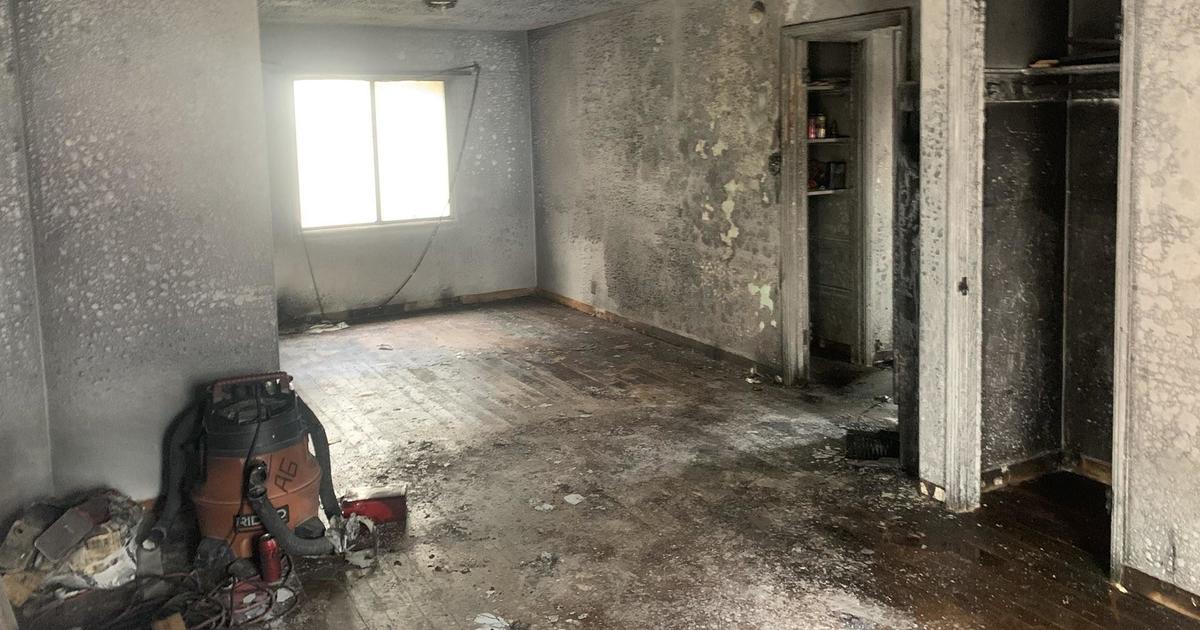Sonoma County Supervisors Outraged Over Fire Alert Plan Failures
SANTA ROSA (KPIX 5) -- Officials in Sonoma County on Tuesday reacted with outrage to a new state report that revealed emergency managers were not prepared for last year's devastating wine country wildfires.
According to a report from California emergency managers released Monday, officials were ill-prepared, disorganized and lacked sufficient training when the deadly, fast-moving wildfires broke out in Sonoma and Napa counties last October.
Sonoma County officials requested the state review after their response time was criticized. The unprecedented wildfires sparked in the early morning and eventually killed 44 people in several counties north of San Francisco and destroyed 8,900 buildings. Many residents reported finding out about the fires from neighbors or relatives, rather than official alerts.
The report concludes that multiple alert systems in Sonoma County, overlapping responsibilities and a failure to map out roles in an emergency "appear to have resulted in duplication, inconsistency and some confusion in messages transmitted to the public."
Counties were operating separately as different employees struggled to cope with hundreds of incoming reports of fires and smoke at numerous locations, leaving them unsure of who was in charge of what, OES investigators found. Two jobs related to sending evacuation and fire warnings even had similar titles: alert originator and alert operator.
County Supervisors haven't really been able to tackle what went wrong during the wildfires for months, choosing to wait for the findings of the state's report. They got those findings Monday and on Tuesday responded for the first time, with plenty of pent-up frustrations getting aired.
The big takeaway for the office of emergency services report was that the county could have sent out wireless alerts telling all residents in the fire's path to evacuate, but didn't.
The state's report found the county emergency response was uncoordinated and had communication gaps. It also determined that the county lacked timely information about the fire's scale, character and movement.
At the Tuesday meeting, county and state officials including personnel from Calfire were inside discussing how to make improvements to the emergency response system.
Among the victims was Sonoma County Supervisor Susan Gorin, who lost her home. On Tuesday, she broke down as she responded to the details in the report.
"I've been listening to my friends and my constituents for four months. The horror stories and the experiences they had on that night were indescribable," said a tearful Gorin. "My heart bleeds and I hug them. Not one person received an alert. "What the hell are we doing here!?"
It's the kind of candor rarely seen in public officials.
But exactly what the death of 25 Sonoma County residents and loss of 6,500 homes deserves, supervisors say.
"It's inexcusable that what we felt was appropriate for the situation was absolutely not appropriate and horribly insufficient," said Gorin.
Lake County sent out wireless emergency alerts, but Sonoma County only sent alerts to those who opted in to the alert system and Nixel.
The county was unaware they could send targeted wireless alerts to only residents in the fire zone and, at the time, county officials said they didn't want to cause panic through the entire county.
Sonoma County Supervisor Shirlee Zane criticized state emergency response during wildfires, saying Cal OES and CalFire are grossly underfunded and provide no consolidated manual for emergency response for communities throughout California.
"There were 13 or 14 counties damaged by fires and flooding and mudslides this year," said Zane. "How many billions of dollars is it going to take to rebuild our communities? And there is no consolidated manual on how to deal with disasters for the state of California? That needs to change."
She was also critical of policies that led to leadership gaps during the disaster.
"Speaking of accountability, I want to make it a policy of this county that we not allow essential personnel to leave the county under these alert systems," said Zane. "I think that was one of the worst tragedies in my mind; that the manager and the assistant were out of the county."
Among the topics being discussed were better training for officials and advocating for more state resources to help in emergency planning.



